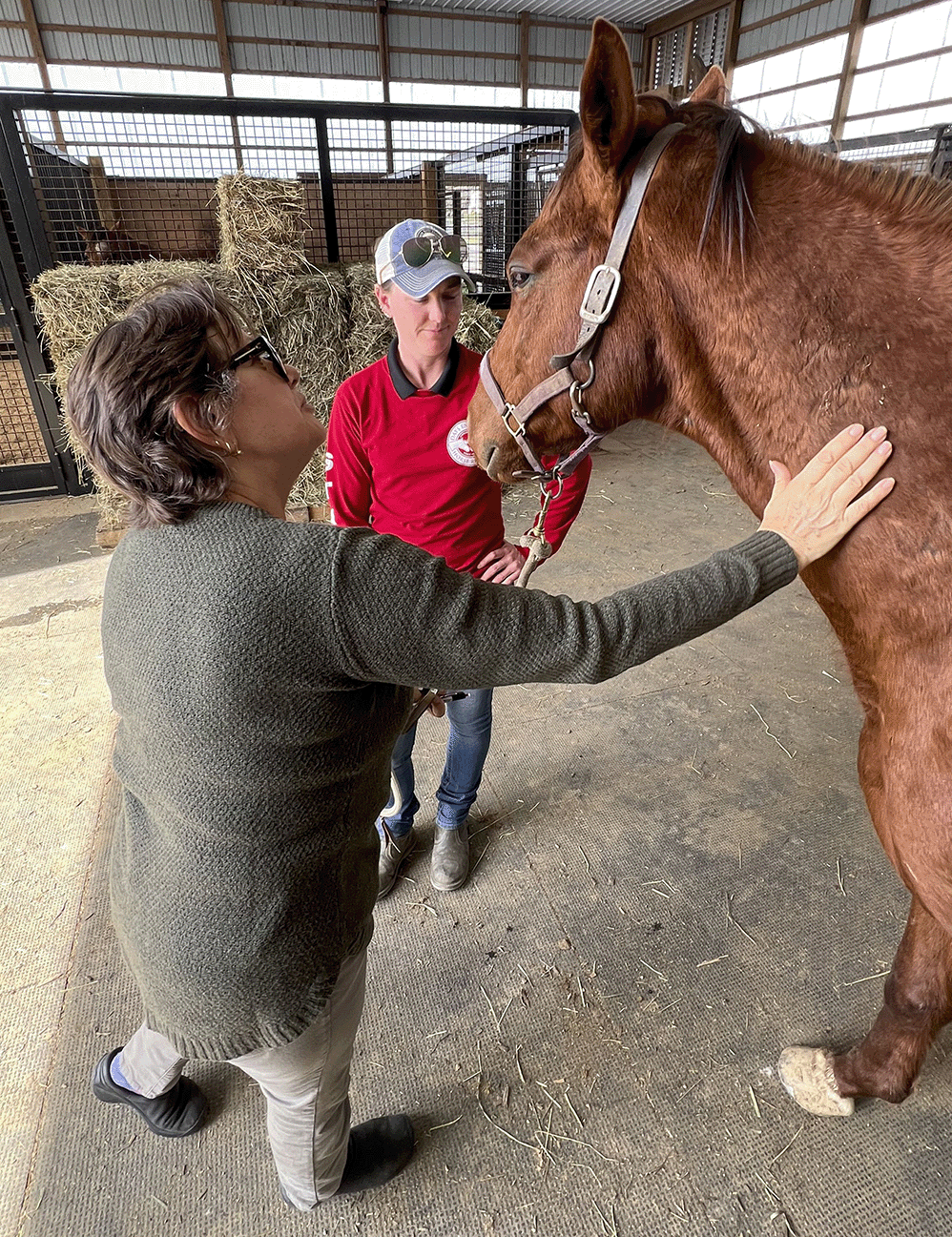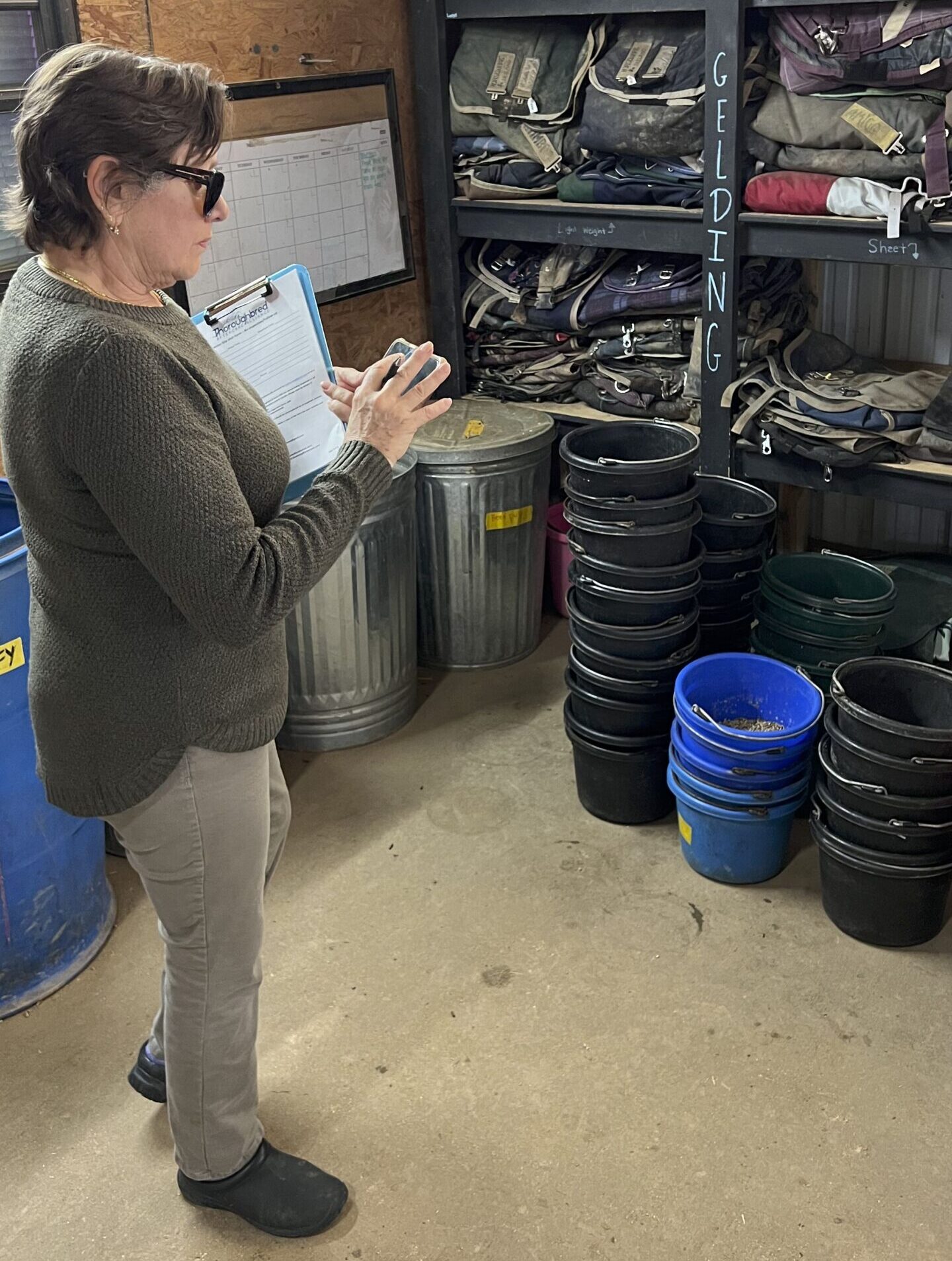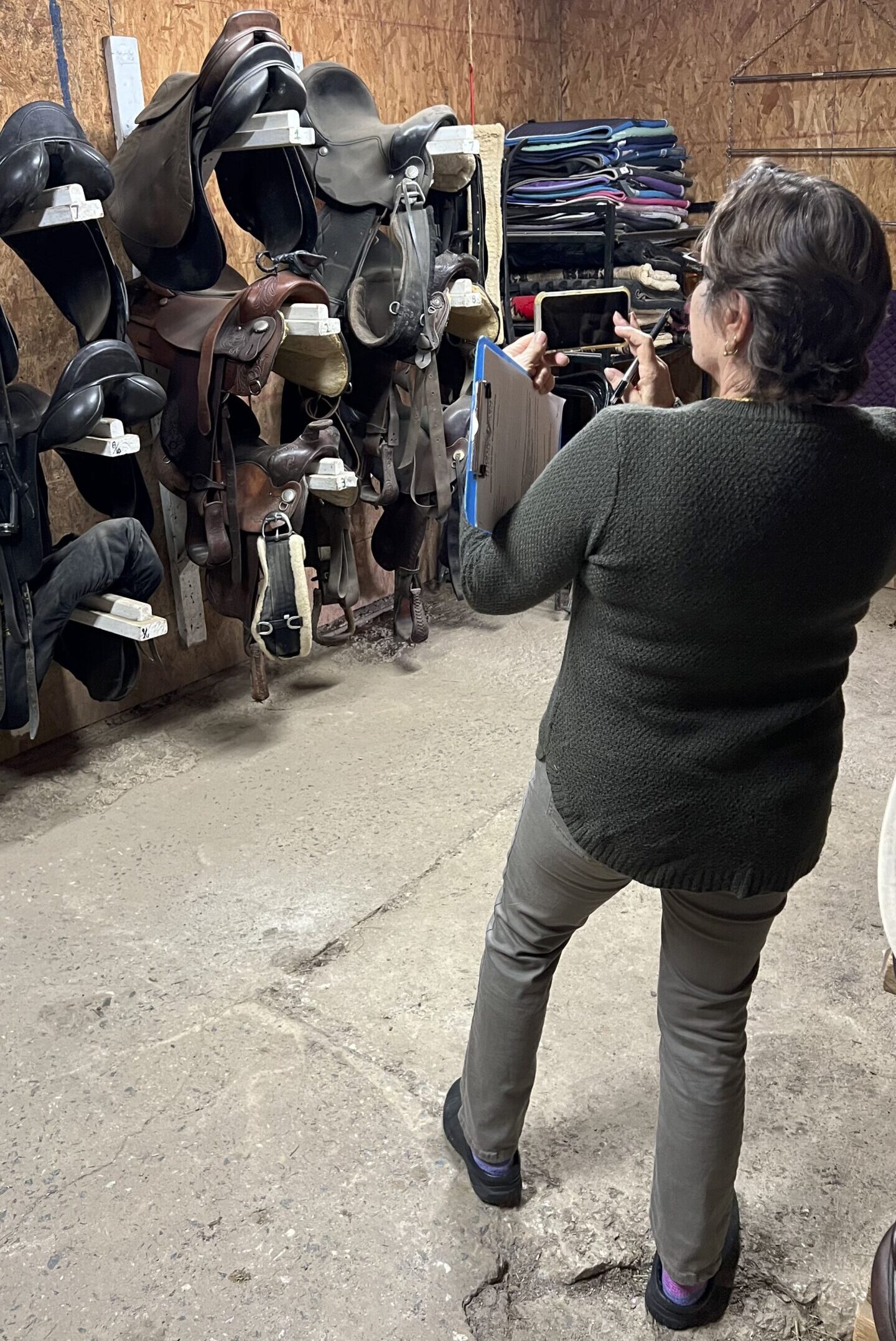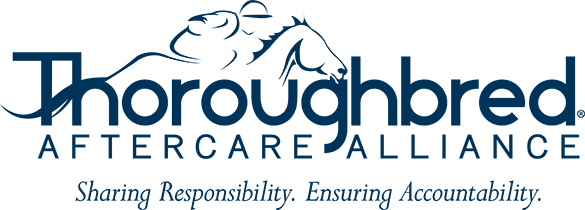More results...
Inspector Spotlight: Robin Coblyn
Inspector Spotlight: Robin Coblyn
By: Alexis Arbaugh

To qualify for accreditation and receive a grant from Thoroughbred Aftercare Alliance, every facility within an organization must undergo a comprehensive inspection. These inspections are carried out by either Thoroughbred Aftercare Alliance staff or one of many approved inspectors located across the country. Sight inspectors are Thoroughbred Aftercare Alliance’s eyes at every facility. They include veterinarians and other equine professionals. Inspectors have prior experience in animal care and Thoroughbred aftercare, which makes them well-equipped to assess facilities seeking accreditation. During an accreditation inspection, the facility and everything that goes into running it is under review. This includes the staff, equine management and care practices, fields, barn/buildings, cleanliness standards, maintenance protocols, and financial management, among numerous other factors, taking pictures as they go. When an inspector visits a facility, all these elements are thoroughly examined.
Robin Coblyn has been working for the Thoroughbred Aftercare Alliance since 2020, conducting inspections in the Mid-Atlantic region of the United States. She is currently semi-retired from the film/production industry, where she held various roles including Production Manager, Coordinator, and Field Producer. In addition to her film/production career, she ran a small boutique breeding business where she mainly bred Thoroughbreds for racing and Irish Draught horses for Eventing. “I am lucky enough to have co-bred a stakes-winning mare who is now a [successful] broodmare,” wrote Robin. After many fulfilling years of breeding horses, Robin decided to retire, largely influenced by the devastating loss of her homebred colt to Lawsonia, which affected her deeply.
In her spare time, Robin enjoys spending time with her retired horses and training her dogs. She also dedicates a significant amount of her free time to yoga and relaxing. Although semi-retired from film/production, she is still involved in some video projects of her own.
“My involvement with Thoroughbreds has always extended beyond their racing days,” Robin wrote. “It is important that every owner, breeder, trainer, and jockey who is connected to a racehorse has their best interest at heart when their racing career comes to an end.” Thoroughbred Aftercare Alliance was formed to provide horsemen with good and vetted options for retiring horses when they are done racing.

Robin has been a passionate equestrian since she was young, as her family owned horses from the time she was just 10 years old. As a child, she loved Pleasure Riding and Fox Hunting. As an adult, she served as an assistant manager at a Thoroughbred breeding farm in Maryland. There, she had the honor of being the groom for The Very One, a stakes-winning mare who earned over $1.1 million with 71 starts. Years later, she acquired her very own horse and began showing in the Hunters and Dressage disciplines.
After she married her husband Skip, they purchased property in Montgomery County, Maryland, where Robin established her breeding operation. In her spare time, she worked for Thoroughbred sales companies in Kentucky to gain experience and additional knowledge in breeding. It was at one of these sales where she obtained her first broodmare that kickstarted her business. Robin continues to work for Thoroughbred sales companies as much as she can in her retirement.
Robin takes great pride in her homebred horses, whether they’re destined for racing or for sport. Before they go to their new homes, instilling socialization and good manners in her young horses is a top priority for Robin, ensuring they are well-prepared for their transition. “My experience at the track has shown me that horses who are difficult to handle sometimes get the short end of the kindness stick in busy racing stables, and I did not want that to happen to any I had bred,” explained Robin.
As a responsible horse owner and breeder, Robin diligently keeps track of all her homebred horses and ensures that each one is brought back to her farm after their racing careers come to an end. Once they are home again and under her care, they receive the retraining they need to start their second career. In addition to having her own retraining program, she works with Kim Clark at Thoroughbred Aftercare Alliance accredited organization Thoroughbred Placement Resources in Maryland to foster their off-the-track-Thoroughbreds until they find permanent homes.

“My involvement with Thoroughbreds has always extended beyond their racing days,” Robin wrote. “It is important that every owner, breeder, trainer, and jockey who is connected to a racehorse has their best interest at heart when their racing career comes to an end.” Thoroughbred Aftercare Alliance was formed to provide horsemen with good and vetted options for retiring horses when they are done racing. “The care and foresight of owners and trainers is a key to this as well as having options [for] their runners who are not wanting to continue… and people willing to be the facilitators of this second career.”
“Having the option to send these wonderful animals to a facility that is accredited and has oversight and financial support is a very needed third leg to the stool of breeding, racing, retirement,” Robin wrote. Robin feels that it is critical for horsemen who want to see the racing industry thrive, that organizations like the Thoroughbred Aftercare Alliance are funded so that their ex-racers can be properly cared for.
In her four years as a Thoroughbred Aftercare Alliance inspector, Robin has seen plenty of great examples of best practices within aftercare facilities. Her favorites include: “Well-kept feet, horses in good flesh, good rehabilitation practices, clean and tidy, organized, a good nutritionally sound feed program, and finally attention to re-training when appropriate for the individual animal.” She also loves to see volunteers spend time with and show affection to the horses.
Robin’s understanding of good equine care comes from her experience taking care of the horses on her farm. “The most critical is proper and timely nutrition. It is an art to letting down an OTTB. Giving them what they need when they need it is the basis of all good programs.” Along with a healthy diet, Robin considers a good retraining program to be another one of her top priorities in equine care.
Most people find performing inspections for Thoroughbred Aftercare Alliance rewarding. Robin is particularly excited for the organization, to know that they are backed by Thoroughbred Aftercare Alliance and receive the support and funding they need to continue caring for and rehoming retired racehorses.






